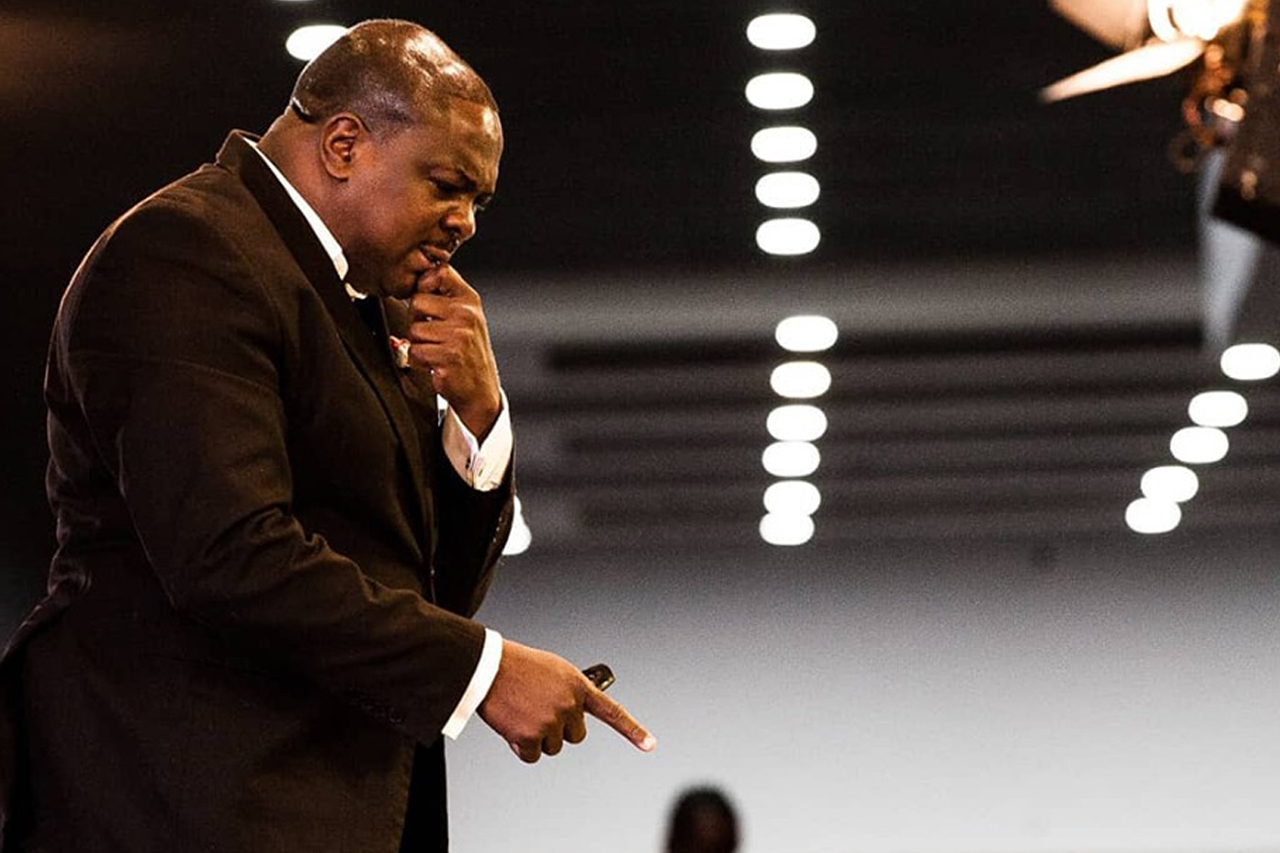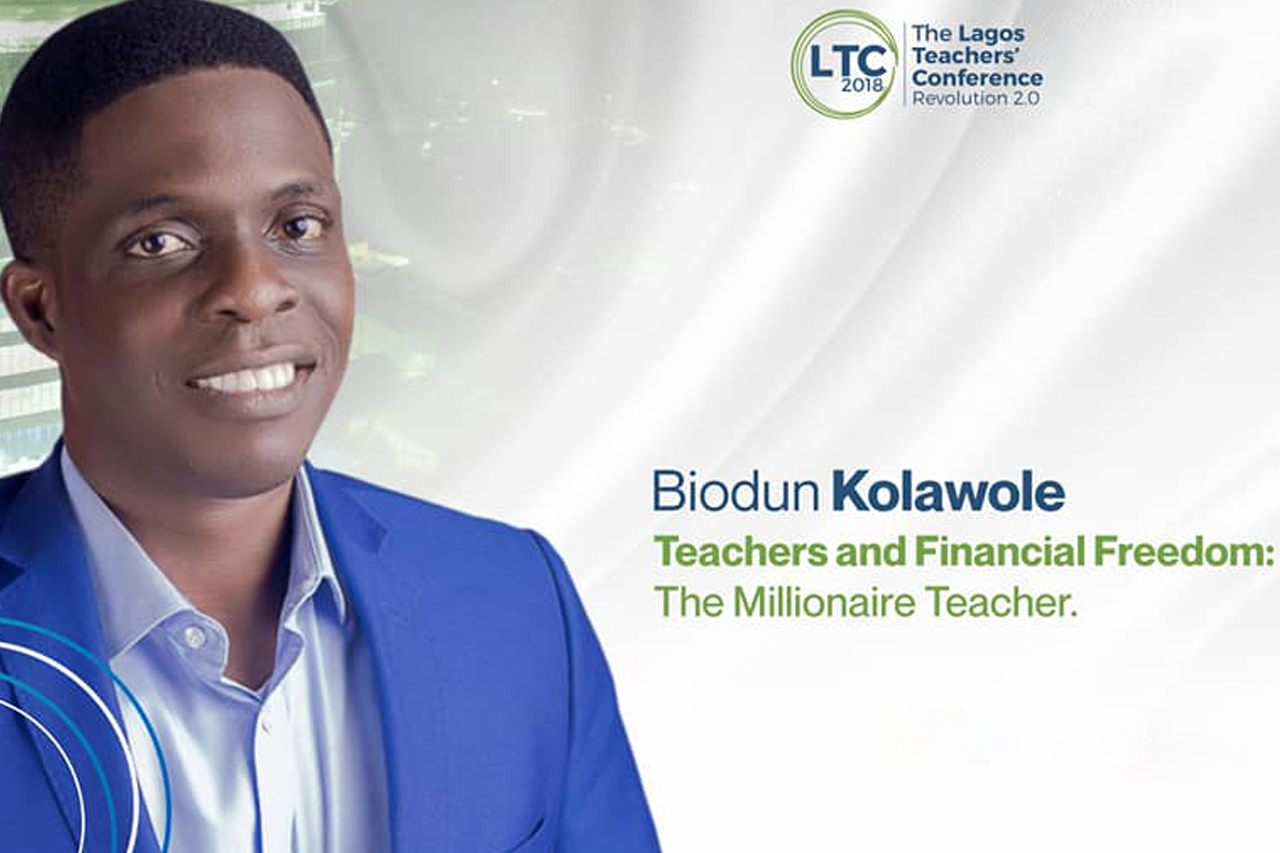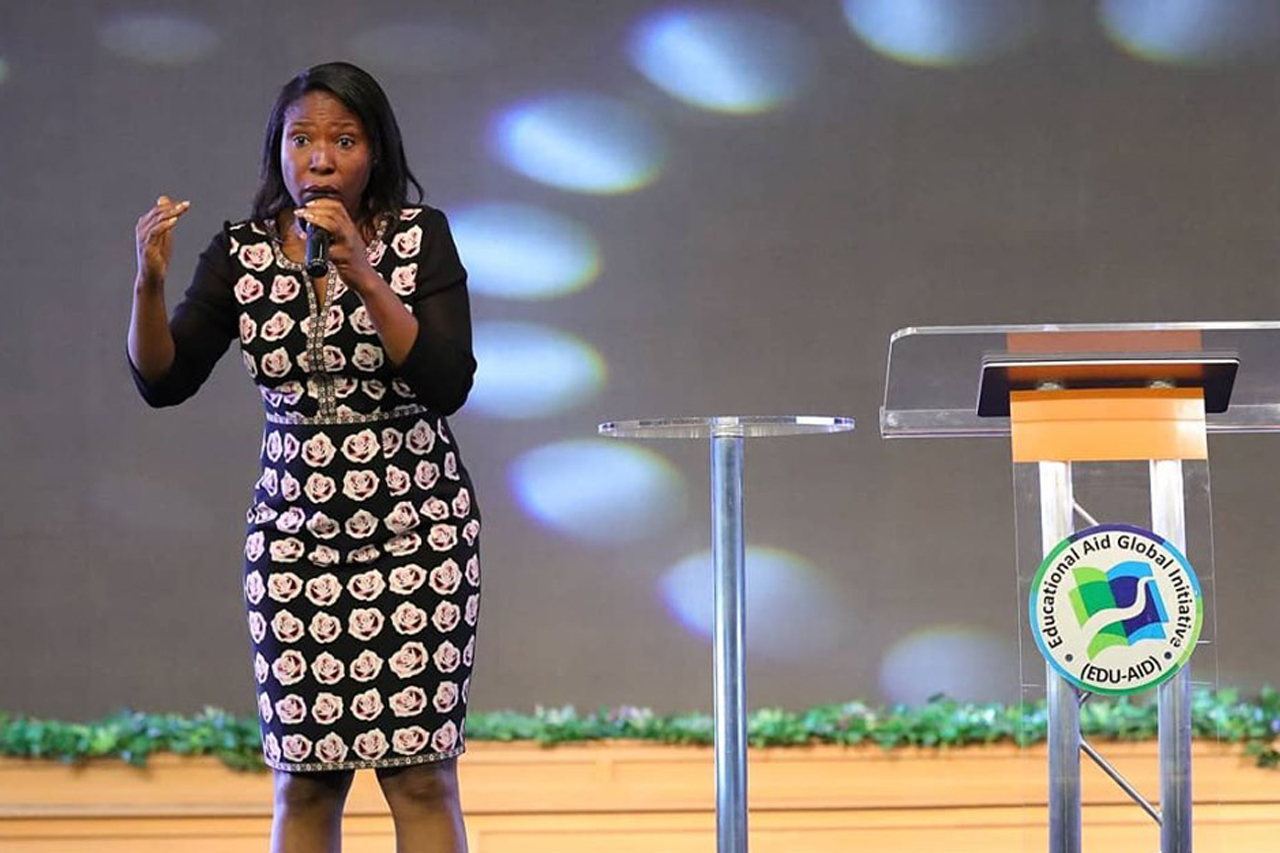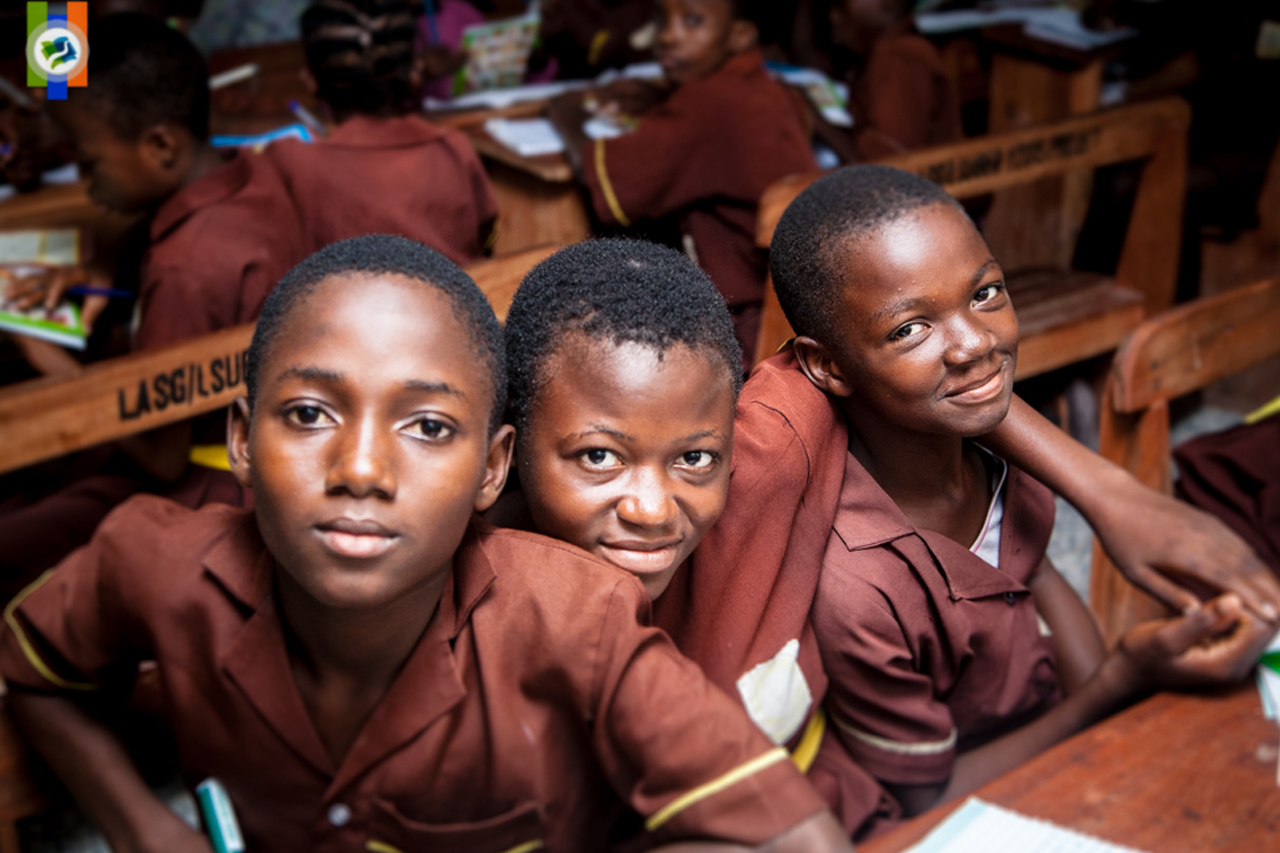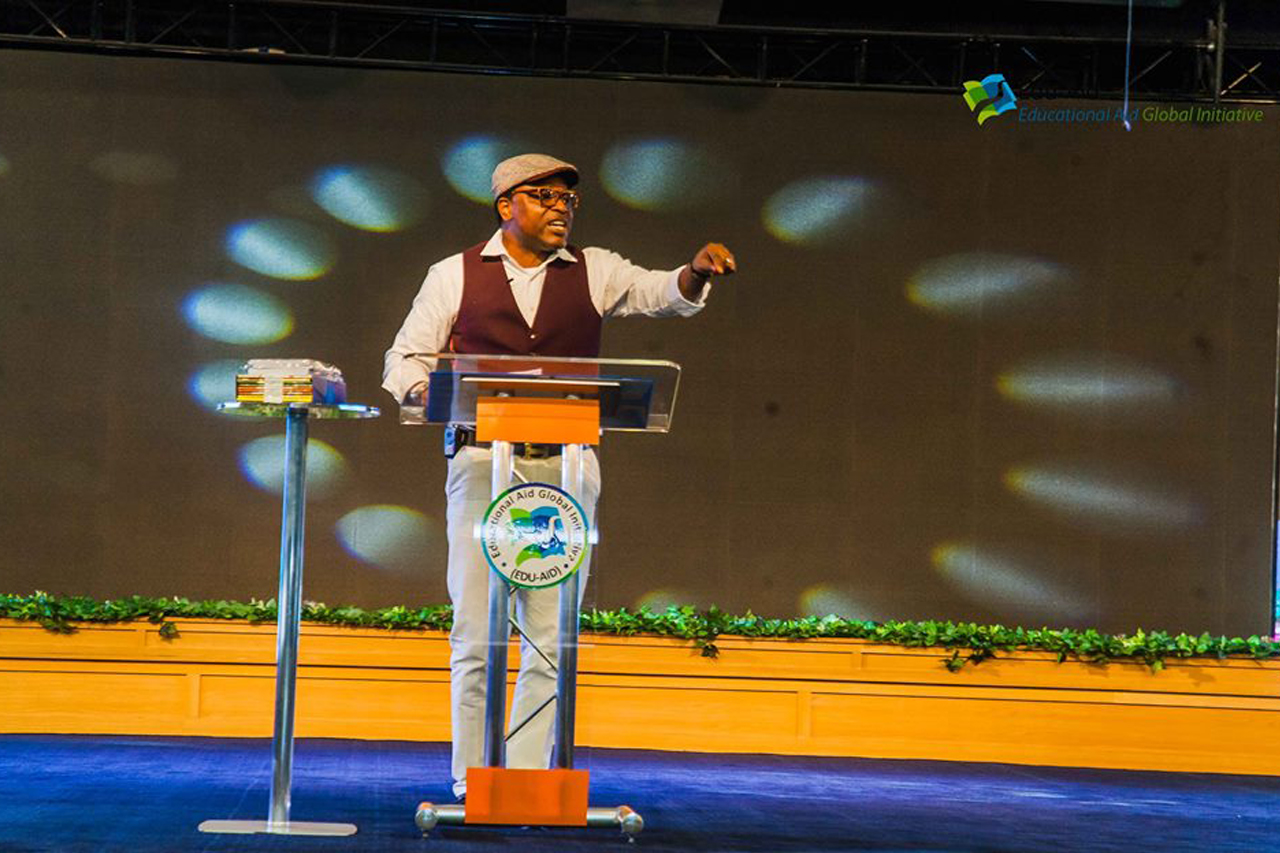 +234 706 673 6513
+234 706 673 6513
 info@lagosteachersconference.com
info@lagosteachersconference.com
Educating the Digital Child – Mr. Adeoye Abodunrin
August 20, 2019 |by eduaidccc | 0 Comments | blog, EducationThere is a saying that “a good teacher is like a candle, it consumes itself to light others”. There are problems in our educational sector that have deprived us of our identity as teachers. In our generation, people are having multiple careers i.e. careers are getting mixed up. We no longer have linear careers. The internet has soon started to change things and we as teachers need to step up.
Who is the digital child? They are the digital natives. For teachers to succeed with their students I.e. these digital natives, they have to change their strategy. They must be able to bring a new approach to educating these digital natives.
Teachers need to get involved in digital education; they most forcefully capture the students’ attention i.e. make them addicted to their courses. In order to educate the digital natives; we have to think digital in the mind, use creativity and experience learning, invest in digital psychologists, engage in social media and make a clan e.g. algebra clan.
To achieve this, it can’t be denied that we need funds, this should not be left alone to the proprietors rather Teachers can involve NGO to fund their school
In conclusion, the digital era is here and teachers need to equip themselves with the necessary knowledge in other to educate the children. Teachers should remember that they shape the future; they need to realize that the energy they give in the classroom drives the future.
For Africa to rise, education is key!.
KEEP READINGTeachers and Financial Freedom – Mr. Biodun Kolawole
August 20, 2019 |by eduaidccc | 1 Comments | blog, Education
“The purpose of teaching in the 21st century is not to transfer knowledge but to transform communities”.
A millionaire teacher is one who earns a million naira within a year, who has over a million naira assets. To be a millionaire, you have to change the configuration of what you see every day and it will come into your life.
Why are people rich or poor?
It could be their Culture; there are cultures that support wealth and they help us in creating a certain belief about money.
There are things that shape our minds about money, people, and beliefs, how we plan, saving culture, investment.
The most asked question by people is what are the opportunities for educators?
Firstly, we need to redefine what we call problems; we need to make use of technology to create wealth. Anywhere value goes out, value comes back.
Teachers need to find a way to use their teaching to create wealth, to acquire wealth you have to change the circle you are running with. If quality enters your mind, it will go into your class. They must pursue excellence in other to get wealth.
Finally, avoid debts, be disciplined and develop a character for wealth.
KEEP READINGPromoting Students Mental Wellbeing – Dr. Yewande Oshodi
August 20, 2019 |by eduaidccc | 0 Comments | blog, Education“It doesn’t matter how you got into teaching, what matters is that you are building a nation.”
EDUCATION AND MENTAL BEING:
The purpose of this conference is for each and everyone to leave with a re-adjustment or a mental shift.
Poor mental health has a long term effect on academics and many teachers fail to see the main cause behind this, many children are laboring under heavy burdens that we are not aware of. It has been discovered that 50% of all mental challenges began before age 14. The underlying meaning of these is that these children are in school and the teachers are not taking note of these problems.
The mental health of a child has to do with what is going on in the life of the child; it’s related to the family and peer relationship. Depression, anxiety, traumatic experience, intellectual disability, substance abuse, these can affect the mental wellbeing of children.
In Nigeria (CAMH) a study in 2010 showed that some kids were consuming alcohol as a way of easing stress. 11.4% children in primary care center were found with mental health issues while 16.4% children in public school admitted to having thoughts of committing suicide.
Challenges for Detection in Schools:
There are a lot of challenges in detecting signs of poor mental in school. The two most important ones are;
- Stigma and discrimination: A teacher should not allow stigma to get into the way of helping a child.
- Lack of skills: Training is very important for teachers in order for them to detect signs of mental health issues and ways to approach it.
CAMH 21st Century Challenges:
The emergence of social media has allowed our children to be open to negative information. By the click of a finger, a child can access information not suitable for their age. There are several challenges we face in curbing this, they include; Poor parenting, an explanatory model of diseases, gaming disorder, cyberbullying.
Finally, we must be willing to recognize a child that is going through mental issues or trouble. Teachers should avail themselves of mental health information and be willing to provide aid to a child that needs it.
We must continue to be advocates for our students!
KEEP READING21st Century Soft Skills for Teachers – Mrs. Maureen Awulonuh
August 9, 2019 |by eduaidccc | 0 Comments | blog, EducationThe world is rapidly evolving and the future belongs to those who have thought of it. Every sector in life has moved on except for the educational sector and it’s the duty of the teachers to move on from where it currently is to where it is supposed to be. There is so much more to life than just hard skill e.g. carpentry…
Firstly, what are soft skills; they are innate gifts, talents, skills that make things better for you. Soft skills are transferable and can be done through communication which is the major work of the teacher. There are four soft skills teachers need to be teaching;
- Problem-solving
- Good communication
- Digital literacy
- Emotional intelligence
Teachers are supposed to be rooted in these soft skills or else they will not be properly equipped in teaching the digital child. We must note that digital literacy is not about owning or using a computer, it is education on how to navigate the computer systems to get the best out of it. Communication is one of the major soft skills for teachers, it involves reasoning, message, speech, reception, decoding, transmission, and interpretation and it is a teacher’s duty to decode how a child should learn. Teachers need to have people skills, technical skills; all these skills should be imbibed in the classrooms.
KEEP READINGEducating the Digital Child. The Generation Z Child
July 21, 2019 |by eduaidccc | 0 Comments | blogStudents have been tagged as unserious and unready to learn, particularly in Nigeria where the rate of failures of terminal exams continues to be alarming. A primary school pupil is more likely to know the lyrics of the favorite’s musician song better than they know their multiplication tables in Mathematics. Born into the age of smart things (from 1995-2012), the students in primary school today are part of the Generation. Z and one distinguishing factor of the Gen Z is that they are pretty smart. People belonging to the Gen Z exhibit certain characteristics which have implications for their learning.
- They have access to information: Thanks to the internet and Search engines, they are able to access information very easily.
- They have a short attention span: Because they exposed to a lot of information at a time, they tend to spend a shorter time on a single information.
- Preference for multimedia over text: They rather watch a video than read a book or listen to audio.
- Preference for Fast-Paced Activities: For Generation Z, everything moves at the speed of light and so activities based on such are most welcomed by them.
The implications for their learning include:
- Access To Information Makes Them More Inquisitive: As a teacher, it is not uncommon for you to find your students asking you questions that you probably had not thought when you were their age. Don’t blame them, they have access to several information in the digital world, sometimes faster than you their teachers. Therefore as teacher, in order to effectively educate a Generation Z child, you need to constantly develop yourself and stay connected to happenings. Social Media is one of their main sources of information and so you have to be on these social media platforms to be informed.
- Research shows that a child between 5- 7 years old is only able to concentrate on an activity for 10-15 minutes, while those between 8-10 years old can go for 15-25 minutes. This is rather short as most of our classes are longer than these said times and teachers have to struggle to keep the children focused throughout the whole time. Based on the above, it is important for teachers to insert breaks or activities during their classes to ensure that they don’t loose the attention of the students who may consider the class as boring when they can no longer concentrate
- The Need for Other Sources of Information: The tradition of using books in schools is beginning to disenchant students who belong to the Gen Z as their preference for Multimedia become really obvious when they are given books in black inks on white papers. Other sources of information should be introduced such as videos, pictures, artworks and if it has books to books, they must be visually engaging, filled with images and illustrations.
- The Need For Activity: Sitting still listening to you as a teacher might prove a difficult tasks for your student who are mainly children and have loads of energy. Teachers should endeavor to include physical activities, interaction and team work (working in small groups) in their classes to make the class more engaging.
Educating a Generation Z Child is obviously a different ball game which may prove challenging but is definitely attainable.
KEEP READINGChild Abuse, Molestation and The Teacher’s Role in Ensuring Safety and Security in Schools – Barrister Taiwo Akinlami
July 3, 2019 |by eduaidccc | 0 Comments | blog, EducationThe arrival of the 21st century brings with it opportunities and threats, and as change agents, we have lost the right to be ignorant. Without the right knowledge, the digital age in the wrong hands can be a weapon for mass destruction. The digital age brings with a lot of activity such as gay acts, transgender, pornography which has gone viral as a result of the internet and easily accessible to children. If we as teachers, parents remain in our analog age we can’t protect the digital child.
ABUSE OF CHILDREN
A recent report conducted by UNICEF discovered an increase in violence against children in Nigeria. 1 in 2 children experience emotional violence, 15.1% of girls and 24.8% of boys first experience sexual violence at school and a lot of our children are not reporting abuse on them because they think that no one will believe them. In Lagos, Gov. Ambode signed into law the Child Rights Protection Law stating that it shall be mandatory for all Lagos state child focus organization authorities to adopt the child protection policy. Edu-aid is creating awareness that teachers have a role to play in protecting the rights of children.
ROLE OF THE SCHOOL
Teachers need to be aware of the dangers of child abuse and its effect. They are to report any hint of abuse on the children. Firstly, there are three kinds of abusers:
- Deliberate abuser
- Reflective abuser- this kind abuses a child without meaning to. He/she does it unconsciously.
- The silent operator- this one is aware of the abuse going on and does nothing about it.
The abuser does four things; profiles the child grooms the child, attacks and manipulate the child. The abuser goes in search for the quiet child who can’t stand up for himself when abused and start to call the child funny names from then goes on to manipulate and abuse the child. This is why teachers must be trained on child protective policies and also create a warm school environment where the children feel connected as this enables them to have a better behavioral outcome.
The world is a big place and we need to focus to change our environment and our self. We are the change the world needs today and we must make commitments to safeguard our child, protect them from child abuse.
KEEP READING
